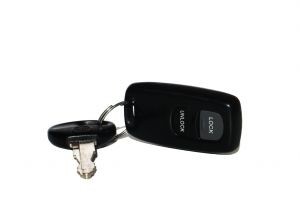The Massachusetts State Senate passed new legislation earlier this summer that will require alcohol ignition interlock devices in many operating under the influence (OUI) of alcohol or drugs cases. An alcohol vehicle breath ignition interlock is a device that is installed on a car and will not let the driver start the vehicle until he or she blows into a sample tube and the car determines the driver is not under the influence of alcohol.
 While this is big step forward, the technology still has a long way to go. Originally, drunk drivers would get someone who was sober to blow in the tube, and they would drive away. This was known as a “blow and go” and would work until the car was turned off. To combat this, the newer devices require a new sample to be given at random times throughout the drive when the car is not in motion. This however, is not fool proof either as there have been cases where a drunk driver will have a child sit in the front seat and blow into the tube whenever required. In the future, even this won’t work, because engineers are working to design a passive breath sensor system in cars that will detect alcohol on the driver’s breath without the need for any type of sample tube, and Congress wants to put these devices in every car, not just those belonging to people who have been convicted of drunk driving. While this may be some time away, our Boston drunk driving accident lawyers welcome anything that can help prevent serious cases of personal injury or even death.
While this is big step forward, the technology still has a long way to go. Originally, drunk drivers would get someone who was sober to blow in the tube, and they would drive away. This was known as a “blow and go” and would work until the car was turned off. To combat this, the newer devices require a new sample to be given at random times throughout the drive when the car is not in motion. This however, is not fool proof either as there have been cases where a drunk driver will have a child sit in the front seat and blow into the tube whenever required. In the future, even this won’t work, because engineers are working to design a passive breath sensor system in cars that will detect alcohol on the driver’s breath without the need for any type of sample tube, and Congress wants to put these devices in every car, not just those belonging to people who have been convicted of drunk driving. While this may be some time away, our Boston drunk driving accident lawyers welcome anything that can help prevent serious cases of personal injury or even death.
A recent editorial written by State Senator Kathleen O’Connor Ives discusses the efforts it took to add an amendment to the new legislation, designed to deal with increasing access to criminal records of repeat offenders. The issue she sees is that many people are getting arrested for a OUI, and the prosecutors are not aware that this was a repeat offense, in part because of lot of prior records have been sealed.
The amendment, though it will be passed through the state house this session, will ask the state department of probation to conduct a study into how the office would be able to research prior convictions for new arrestees and get that information in the hands of the prosecutors. There are a lot reasons that prosecutors would want to charge someone as a repeat offender. The first thing is that it generally eliminates the possibility that a repeat offender will be given a pretrial trial diversion such as continuation without a finding (CWOF), which allows the court to dismiss the charges after a period of pretrial probation has been completed. A CWOF is not a conviction, and it is also the kind of thing that can get sealed from one’s record, thus not giving prosecutors the chance to know about it should a second offense occur.
We have seen cases involving serious drunk driving car accidents where a person was still driving, without an interlock, even though he or she had been convicted more than five times in the past of OUI. This is what the new amendment is aimed at preventing.
If you or someone you love has been injured a Boston drunk driving accident, call for a free and confidential appointment at (617) 777-7777.
Additional Resources:
Closing the Loopholes on Drunk Driving Laws ~ IN YOUR CORNER WITH SENATOR KATY IVES, August 28, 2016, The Valley Patriot
More Blog Entries:
Report: Possible Tougher Drunk Driving Laws in Massachusetts, March 30, 2016, Boston Drunk Driving Accident Lawyer Blog
 Boston Drunk Driving Accident Lawyer Blog
Boston Drunk Driving Accident Lawyer Blog

